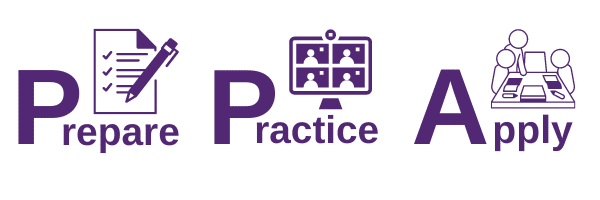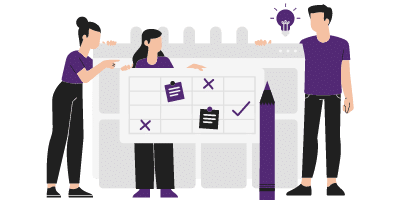Driving learner engagement is very important for corporate learning and development teams. Forcing individuals to learn is unwise and very rarely effective. In many ways it represents a contradiction because genuine, lasting learning can only take place when the individual chooses to engage with it (which also requires the admission that they have something to learn in the first place – sometimes complex).
Getting people excited or enthusiastic about changing the way that they think and behave is challenging and represents a common question we are asked by our learning partners. One of the answers lies in creating learning and development that is both inspiring and impactful but raises the prospect of navigating the gap between those two qualities.

Inspiring learning is engaged with because it paints a portrait of what life could be like if it is successful. It addresses the ‘why’ of development. In the mind’s eye of a leader, this might look like someone who is liked, respected and followed by a loyal team. For others, they might see themselves armed with (and able to evidence) the confidence and competence to be in pole position for that next promotion.

Impactful learning generates interest because of its direct relevance to an individual’s reality. It addresses the immediate ‘how’ of development. If they truly believe they are going to pick up the tools needed to remove some of the frustrations that they encounter and solve one of their common problems, they will be an attentive and thoughtful audience.
So, effective learning must allow the recipient to see both a theoretical picture of where it will take them, and the practical benefits of getting there. They will then engage with it before, during and after the confines of any workshop or ‘intervention’
For Eliesha and our learning design, the space between these two qualities is extremely important element and, in ensuring that our workshops and programmes do both, our focus is on careful management of the transition from one to the other. This is because it is all too simple to create learning interventions that are either a) inspiring but not impactful, or b) impactful but not inspiring.

For the former, workshops focus too much on theory, without grounding it in the reality of your learners’ experiences. Feedback from learning interventions like this can be summarised as “nice ideas, great stories and some really interesting insight – in an ideal world we would put them all into practice immediately, but we don’t live in the ideal world.” Learners return to work frustrated by a vision of what could be, without a practical plan of how to achieve it.

For the latter, workshops are too focused on changing as much as possible. In order for leaders to feel like they have had ‘skills training’, they are bombarded with tools, models, techniques and acronyms – all of which they are susceptible to immediately deploy, with little nuance, on their unsuspecting teams. This leads to the feeling that things are being changed for changes sake, rather than for a clear purpose or outcome. Learning like this can have a large impact, just rarely the nuanced and sustainable impact that our customers want.
Truly inspiring and impactful learning happens when learners are first inspired to choose the new approaches and behaviours that will deliver the outcomes they desire and are suited to them and their operating environments,. and then guided on how to sensibly start using these in their role for maximum, context-sensitive impact.

A large part of bringing this about in our own training lies in our prepare, practice, apply model. The prepare element encourages and guides learners to conduct both self-reflection and research before they ‘arrive’ (physically or virtually) at a training session. Self-reflection occurs through the completion of questionnaires and other exercises, encouraging them to think about how they are currently working and where there may be room for change. Research allows them to prime their minds with short videos or articles that will mean they aren’t starting from scratch in terms of the theory behind a topic.
Practice happens in the session itself, where skilled facilitators guide learners through the application of theory into practice, creating a safe space for them to apply new skills and behaviours to their real world challenges.

Finally, when it comes to the application of new learning, we know it takes much longer than the confines of a workshop for competence and confidence to grow. However, as the saying goes, the longest journeys still start with a single step, and it is those first steps that we guide our learners to take through the completion of action plans. They are encouraged to commit to specific occasions they will choose and specific timeframes by which they will have done so. These can then be monitored and used to create evidence of a return on investment in the training.
Prepare, practice, apply is just one way to address the gap between inspiring and impactful learning, but forms a valuable framework that others, can fit within. There is no single solution for closing the gap entirely, and the extent to which it is possible will vary topic-to-topic and depending on specific learning outcomes. However, in our experience, learning and development that focuses on it is engaged with positively and, months or years down the line, can still be felt in day-to-day behaviour.
The design and delivery of learning interventions that are inspiring and impactful is no small undertaking, and something that calls on all of our 20+ years’ experience and experienced, expert trainers and facilitators to do well.
To find out more about how we can help you to achieve your workforce development aims and objectives, send an email to [email protected] or fill out an enquiry form here.